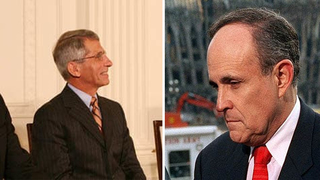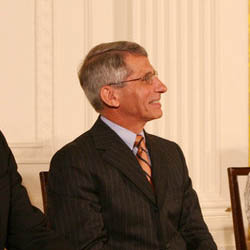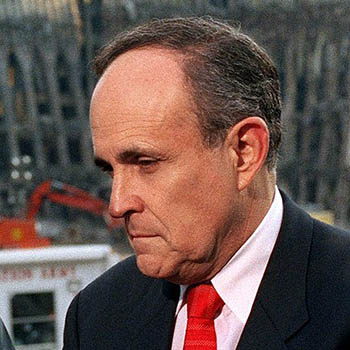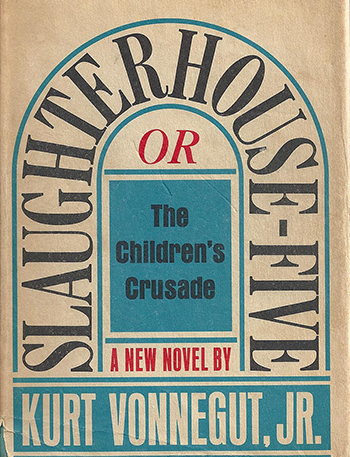Historical Takeaways For What's Happening Now

You've seen the world outside, so let's just get into it:
The 1755 Lisbon Earthquake
Don't worry: the other stories are modern. This story is the only one from Powdered Wig Times. And there's a reason for that.

On the morning of Sunday November 1st, 1755, the Portuguese city of Lisbon experienced an earthquake. This was a Sunday morning in 1700s Europe, so most people were at church. Lisbon's big stone churches collapsed on them. Lisbon's wooden buildings caught fire. And Lisbon's non-squished, non-burned residents fled to the city's waterfront, only to get top-roped by a tsunami.
Charles F. Richter proposed his earthquake-measuring scale 180 years after this earthquake. Measuring the 1755 quake's scale requires an educated guess. And seismologists guesstimate it to be in the 8.0-9.0 range, give or take a few murder-tenths. We know the devastating shaking reached Morocco. We know further tsunami waves reached Ireland. The quake's psychological toll dominates Voltaire's Candide.

In America, we call that kind of catastrophe "an act of God." Why? Is it because we are all devout Christians? (Survey says .) Is it because insurance companies literally call it "an act of God" when they "adjust" your disaster benefits? Is it because God is culpable and the authorities plan to arrest Him?

I think the answer is simple: "an act of God" is a relic of how Christian Europeans used to think. It's also how the occasional modern asshole thinks. And I'm not saying religious belief is antiquated. I'm saying believing "earthquakes are God's corporal punishment!" is antiquated... if you are reading this blog after 1755.

Fast bibliography here: I made this blog out of stories we did not cover in this Cracked Podcast episode. (Buy Jason Pargin's upcoming book!) The stories spring from Rebecca Solnit's A Paradise Built in Hell: The Extraordinary Communities that Arise in Disaster. (Buy Rebecca Solnit's books!) Solnit's work on Lisbon cites pioneering disaster researcher Russell Dynes (RIP) and his journal article linked here.

Dynes argues the 1755 Lisbon quake was a (European/Christian) turning point. Lisboners treated that natural disaster as a natural disaster. Which makes a huge difference! If God did a quake to you because you're bad, what can you do but lie down and take it? God might even respect you for taking your lumps, instead of fleeing, and forcing Him to shake each new location you flee to.

Portugal treated this natural disaster like a natural phenomenon. So they rebuilt without shame. They updated their building codes. A royal minister nicknamed Pombal organized this painstaking parish-by-parish survey of the quake's damage, because he wondered if they'd learn anything useful from doing that. That kind of data was new. It was a forerunner of modern seismology!

Pombal's efforts didn't bring back the dead. But his efforts mattered, down the line. Because every natural disaster has a partially man-made result. We choose how to rebuild. We choose which tools Future Leaders will have in the next crisis. And those Future Leaders might receive our tools, waste the tools, and try flimsy ass-coverage when someone calls them on it. But if we're lucky, they'll make those tools count.
The 1985 Mexico City Earthquake
Stats from Solnit: an 8.0 quake, with aftershocks at 7.5 and 7.0. At least 10,000 people died. Around 800,000 people ended up homeless. And Mexico's dishonest, lazy, corrupt federal government took a terrible crisis and made it worse. Let's flesh out that last idea, because it's a hard one for modern Americans to relate to.

The Institutional Revolutionary Party (PRI) is a Mexican political party. It held uninterrupted power in Mexico from 1929 to 2000. I'd describe its style of building code enforcement as "freestyle kickback acquisition." And in 1985, Mexico City's comprehensive building collapses made that obvious. As Solnit puts it: "The earthquake literally cracked open the facade of the ruling Institutional Revolutionary Party... and revealed the corruption underneath. ... The era of the earthquake was akin to that of the civil rights movement in the United States, when what had long been the status quo was found to be intolerable. When that happens, change follows."
Ordinary Mexicans took heroic action against the quake and their government. They formed teams of volunteers called brigadistas, providing aid and relief the government wouldn't. Students laid down in the path of government bulldozers, because government 'dozers tended to sweep away rubble before pulling screaming survivors out of it. The government also attempted some shady property stuff, using the quake's messy aftermath as cover for helping rich developers evict inconvenient poor folks. But one citizen put on a lucha mask and created a character called "Super Barrio", a wacky wrestler drawing national attention to the scam. He's credited with stopping 10,000 evictions. He's awesome. And I hope it's copyright-safe to show you his picture.

Mexico had an execrable federal government going into their disaster. They had one afterwards too. According to Solnit and others, the PRI followed up its 1985 quake bungling with 1988 election fraud. The PRI stole the election by claiming the electronic voting system crashed. The PRI got away with this because Mexico had an electronic voting system, and electronic voting systems are almost impossible to safeguard.

So it's worth remembering a government might get away with bungling a crisis. Especially if that government undermines the voting systems designed to hold them accountable. Mexicans had to agitate for another decade-plus before they gained multi-party democracy. It's still a flawed democracy. The PRI stole another election in 2012. And I think if we Americans peg our expectations that low, we can fight for change without getting our hearts broken by change being slow and imperfect.
The 1993 World Trade Center Attack
Fast facts: in 1993, terrorists blew up a van full of explosives in the World Trade Center's underground parking garage. Six deaths, more than one thousand injuries. Pre-9/11, this was what people meant by the phrase "World Trade Center attack". Also, many of you were born post-9/11. According to math, most present-day 18-year-olds were born after 9/11. That math in no way freaks out your elders.

If you are a teen, I wonder what you think about Rudy Giuliani. I'll bet he strikes you as a funny television lawyer slash fossil. He's like if Abe Simpson had Lionel Hutz's job! Or like another reference, from after you were born! ("Something something Barry Zuckerkorn." Thanks for coming through in a pinch, TV From 2003.)
In 1994, Rudy Giuliani became the mayor of New York City. In real life! Voters picked that Abe Hutzerkorn guy twice! So he supervised the forward-looking security planning after the 1993 attack. Experts recommended creating an Office Of Emergency Management command center. Giuliani agreed. Experts recommended putting this command center in a secure location in Brooklyn. Giuliani disagreed. He put it in World Trade Center Building 7 (!) on the 23rd floor (!!). The city finished the command center in 1997, and evacuated the command center in 2001. Because it was too close to Ground Zero! So New York City's nerve center for responding to 9/11 was not usable during 9/11.

This 100% happened because Rudy Giuliani wanted to look cool. Rudy wanted to do his Heroic Winston Churchill cosplay in style. He wanted photo ops with a non-bunker background. Rudy also wanted to run for President in 2008 in style, which meant burying this fact instead of addressing it. So he arranged a 2007 Fox News interview. He blamed a lower-ranking city official for the Emergency Operations Center's location. And Fox News's Chris Wallace replied to Giuliani by presenting him with a memo. A memo written by the lower-ranking city official, in the 1990s, recommending the Brooklyn site. It turns out even a broken clock is fair and balanced twice a day.
It also turns out crisis preparation is not something you do for the 'gram. You must prepare for a crisis like a nerd, in a basement in the not-cool part of Brooklyn. Or you prepare in a stylish way if that works the best and saves the most lives. Or you wear the damn mask, because demonstrating good public health behavior matters more than your three-plus years of desperate Churchill cosplay.
1940s British and German cities
You don't need background here, right? World War II. Planes dropped bombs on cities. Also the Nazis lost, and it's good they lost. You know all of this.

But unless you've read Rebecca Solnit's amazing book, you don't know the story of U.S. Army Air Corps Captain Charles E. Fritz. I can't find his picture.

Fritz was a trained sociologist. At the end of the war, he helped the U.S. Strategic Bombing Survey study bombing campaigns' impact on civilian morale. How did Londoners hold up under 12,000 metric tons of bombs that killed 30,000 people? How did urban Germans handle 45,000 bombs hitting their cities within one year? And 3,000 tons of bombs hitting Berlin in one day? And the incineration of at least 18,000 Dresden residents in one firebombing?

The study's short answer: British and German populations were not demoralized by those record-setting bombardments. Furthermore, "people living in heavily bombed cities had significantly higher morale than people in the lightly bombed cities." The team even studied Japan's (non-atomically) bombed cities, to check their British/German work, and got similar data.
Fritz and the team disagreed on what this data meant. His colleagues claimed British people withstood bombing thanks to British innate toughness. His colleagues claimed German people withstood bombing because Hitler forced them to withstand it. But here's Solnit's description Fritz's analysis:
"Fritz's first radical premise is that everyday life is already a disaster of sorts, one from which actual disaster liberates us. He points out that people suffer and die daily, though in ordinary times, they do so privately, separately. And he writes, 'The traditional contrast between "normal" and "disaster" almost always ignores or minimizes these recurrent stresses of everyday life and their personal and social effects. It also ignores a historically consistent and continually growing body of political and social analyses that points to the failure of modern societies to fulfill an individual's basic human needs for community identity.'"
Don't misunderstand Fritz. He's saying disasters are bad. Also if you are Lyndon Baines Johnson, please don't misunderstand Fritz. Because Fritz went on to find similar results in his studies of North Vietnam.

Solnit cites Fritz to say disasters are an opportunity to build community. You gain a context for connecting with others. A good reason to Zoom with an old friend on a weekday afternoon. You can't end the war against 1940s fascism or against 2020s ignorance all on your own. You're rolling with a context outside your control. But you can (socially distantly) win the war against loneliness. As a Dresden survivor once said, "the most daring thing is to create stable communities in which the terrible disease of loneliness can be cured." So thanks for reading. And hang in there. And go kick this thing's ass by saying hi to somebody with the same device you used to read this.
Alex Schmidt makes The Cracked Podcast and made you this blog too.